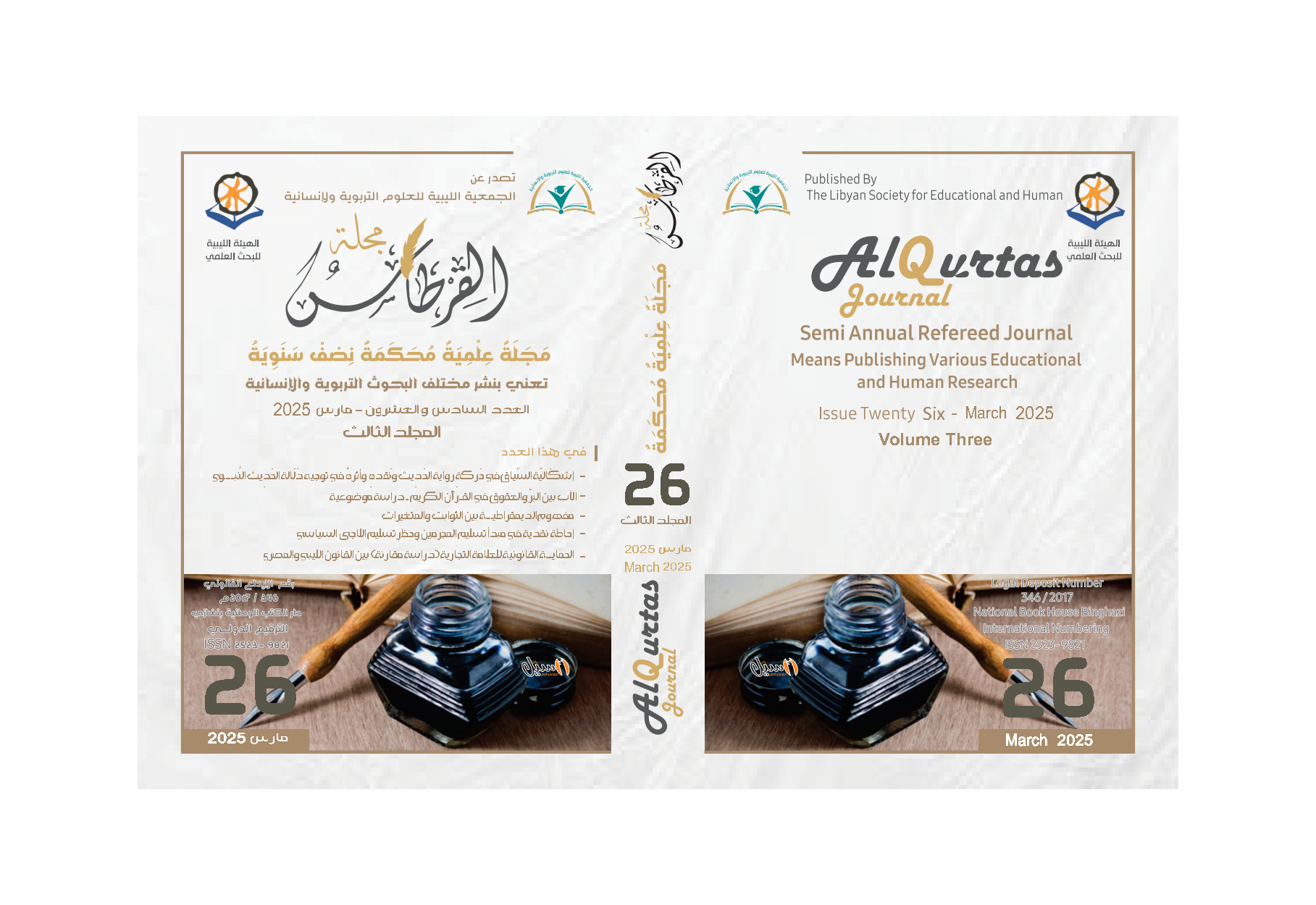مفهوم الديمقراطية بين الثوابت والمتغيرات
Main Article Content
Abstract
Everyone agrees that sovereignty belongs to God Almighty. The nation is the source of authority, meaning the right to choose who governs it, and that they are representatives of the nation . Legislation is the right of God Almighty, and no one has the right to forbid what is permissible or permit what is forbidden . The religious the ocratic state that rules in the name of God is rejected, and what is required is a civil state, which does not mean a secular state in which religion and state are separated, and that in Islam there is no “Give to Caesar what is Caesar’s, and to God what is God’s” and that the supreme authority is the Book and the Sunnah, and any law that contradicts them is null and void . Legislative councils have the right to legislate on matters that do not contradict Sharia, such as: traffic laws, commercial and administrative laws, and others. Any legislation that contradicts Sharia is considered null and void . The democracy advocated by the broad spectrum of scholars and thinkers is not democracy in its philosophical sense, but rather what is consistent with the Sharia in terms of concepts, values, means and mechanisms related to changes in time and place The civil democratic state called for by the broad spectrum of scholars and thinkers is the opposite of the authoritarian dictatorial state . Democracy is the closest thing to Shura, and accepting it is a step towards returning to the establishment of a complete Islamic system of government that achieves justice and security for the people. There is no dispute over terminology, such as the term democracy and the nation as the source of authority and sovereignty, and all terms that are close to it, we mean what does not contradict the Sharia and its objectives . The disadvantages of democracy are better than the advantages of tyranny

